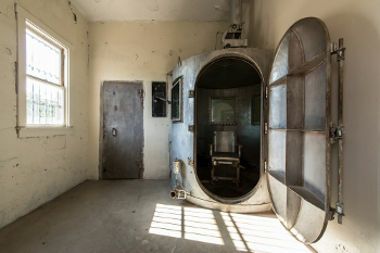Test your knowledge with questions about social movements with feedback prepared by our expert teachers.
question 1
(Enem/2011) In the 1990s, peasant social movements and NGOs stood out, alongside other collective subjects. In Brazilian society, the action of social movements has been slowly building a set of practices democratic institutions within schools, communities, organized groups and at the interface of civil society with the state. Dialogue, confrontation and conflict have been the engines in the process of democratic construction.
SOUZA, M.A. Social movements in contemporary Brazil: participation and possibilities of democratic practices. Available at http://www.ces uc. pt Accessed on: 30 Apr. 2010 (adapted).
According to the text, social movements contribute to the process of democratic construction, because:
a) determine the role of the State in socioeconomic transformations.
b) increase the climate of social tension in society
c) put pressure on the State to meet society's demands.
d) privilege certain parts of the company over others.
e) encourage the adoption of ethical values by State bodies.
Correct alternative: c) put pressure on the State to meet society's demands.
Social movements mediate between different social groups and the government. In this way, they put pressure on the State and demand that popular demands be met.
This measure reinforces the democratic character of the policy, as it makes it difficult for the government to act unilaterally or authoritarianly.
See too: Social movements.
question 2
In a democratic society, individuals and groups organize themselves into associations, social and popular movements, different classes. organize in unions and parties, creating a social counter-power that, directly or indirectly, limits the power of the State.
Marilena Chauí, Invitation to Philosophy
In this sense, the importance of social movements for the claims of minority groups is because:
a) increase in insecurity and social chaos.
b) make their claims visible and increase their representativeness.
c) generate employment and financial capital movements.
d) weaken government institutions through criticism and demonstrations.
Correct alternative: b) make their claims visible and increase their representativeness.
In general, some minority groups have little political representation. Thus, without the action of organized movements, many demands run the risk of being made invisible, putting these groups on the margins of the democratic process.
know more aboutDemocracy.
question 3
Which of the organizations below is not a social movement?
a) Labor strikes
b) Feminist collectives
c) Student movements
d) City councils.
Correct alternative: d) City councils.
City councils are the place of action of the legislative power in the figure of elected councilors. This institution represents the State, it can be acted upon by social movements, but it is not configured as a popular organization.
question 4
(Enem/2015) “There is no doubt that the main contribution of different types of movements in the last twenty years was in the plan of rebuilding the democratization process of the parents. And it is not just a matter of rebuilding the political regime, the resumption of democracy and the end of the Military Regime. It is about rebuilding or building new directions for the country's culture, filling gaps in the fight for democratization, constituting themselves as interlocutors that dialogue directly with the population and with the State.” (Adapted from: GOHN, M. G. M. The landless, NGOs and citizenship. São Paulo: Cortez, 2003).
In the process of Brazilian redemocratization, the new social movements contributed to
a) to diminish the legitimacy of the new political parties created then.
b) make democracy a social value that goes beyond electoral moments.
c) spread representative democracy as a fundamental objective of political struggle.
d) expand disputes over the hegemony of workers' organizations with unions.
e) to fragment the political struggles of the different social actors facing the State.
Correct alternative: b) make democracy a social value that goes beyond electoral moments.
The text speaks of the importance of social movements for the democratization of the country. From this perspective, the author pays attention to the importance of social groups being heard.
Social movements reduce the distance between the people and the State, as they mediate between the population and politicians.
Thus, the political participation of the population is not restricted to elections.
better understand theRedemocratization of Brazil.
question 5
The “Diretas Já” movement was a popular mobilization that began in 1983. The movement claimed to:
a) amnesty for political prisoners of the military regime
b) resumption of direct elections for the presidency of the republic
c) direct re-election without the need for election
d) implementation of a communist regime in Brazil
Correct alternative: b) resumption of direct elections for the presidency of the republic
The movement started in May 1983, mobilized millions of people who demanded that the people could return to participate in the elections for the presidency of the republic, which had not happened since 1960.
Learn more about the movement ofDirect now.
question 6
The Landless Rural Workers Movement (MST), existing since the 1970s, is a social movement that has as one of its central agendas:
a) agrarian reform and redistribution of unproductive land
b) extinction of private property
c) reorganization and sustainable development of urban centers
d) redistribution of profits in the agrarian sector
Correct alternative: a) agrarian reform and redistribution of unproductive land
The Landless Rural Workers Movement (MST) is the largest social movement in the country with around 350,000 families, with the objective of redistributing unproductive land.
Criticisms of the movement are related to the right to private property, guaranteed by the Federal Constitution. However, the movement pays attention to the fact that the Constitution provides for the agrarian reform of illegal and unproductive lands.
Read too: Movement of Landless Rural Workers (MST).
question 7
Feminism is a plural social movement that encompasses diverse currents of thought and ideologies. Many authors prefer the use of the plural term, “feminisms” so that this distinction becomes evident. Some currents of feminism are: black feminism, emancipationist feminism, liberal feminism, Marxist feminism, radical feminism, intersectional feminism, transfeminism, etc.
Features common to feminisms are:
a) Coalition of gender, race and social class guidelines.
b) The inversion of the current social structure and the subordination of man.
c) Overcoming capitalism through the extinction of the primitive accumulation suffered by women.
d) The struggle against patriarchal culture and for equal rights.
Correct alternative: d) The struggle against patriarchal culture and for equal rights.
The common characteristic of the different currents of feminism is the denunciation and reaction to a patriarchal culture, centered on the figure of the man as the head of the family and, consequently, of the State.
This perspective relegates women to a subordinate role. According to Simone de Beauvoir, the patriarchal culture made the woman to be understood as a "second sex", having its existence dependent and relativized by the figure of the man as the being universal.
See too: Feminism.
question 8
"Adults keep saying, 'We must give young people hope.' But I don't want your hope. I don't want you to be hopeful. I want you guys to be panicking. I want you to feel the fear I feel every day. And I want you to act. I want them to act as they would in a crisis. I want you to act like the house is on fire, why is"
Greta Thunberg in a speech in Davos, 2019
The young Swedish activist Greta Thunberg is a reference in social movements in which area?
a) Racial
b) LGBTQI+
c) Feminists
d) Environmental
In recent years, Swedish activist Greta Thunberg has emerged as one of the great voices on the environmental issues in its relation to global warming, being nominated for the Nobel Peace Prize, in 2019.
Read more about: Climate changes.
question 9
It can be said that they are structural features of the new social movements, except:
a) Decision centered on a leading figure.
b) Development of collective actions.
c) Development of local, regional and global actions.
d) Use of internet tools for the dissemination of claims.
Correct alternative: a) Decision centered on a leading figure.
The new social movements have some characteristics that differentiate them from traditional class movements.
In general, they are decentralized movements, organized collectively without the figure of a movement leader.
Cyberactivism, for example, is one of the tools used by new social movements that have as characteristics the spontaneous and decentralized organization capable of strong mobilization and visibility for the claims.
question 10
The demonstrations in June 2013 in Brazil were a movement that took thousands of protesters to the streets and had a strong police repression in several states of the country. What agenda started this movement?
a) The high levels of corruption in the Brazilian political sector.
b) the polarization generated by the ideologies present in social movements.
c) The opposition to the increase in public transport tickets.
d) The closing of the congress and the implementation of a military regime.
The movement that gave rise to the June 2013 demonstrations, also called the Jornadas de Junho, began with a campaign against the increase in tickets in several cities across the country.
The demonstrations became bigger and bigger and started to use the motto "it's not just for R$ 0.20" (in reference to the increase in tickets).
In a short time, the mobilization took millions of citizens to the streets with a wide variety of agendas.
Other texts to help with studies:
- Questions about Social Inequality
- Citizenship Questions (with feedback)
- Questions about Karl Marx
- questions about socialism
- Questions about Capitalism
- Questions about the Military Dictatorship
- Exercises on cultural industry and mass culture



